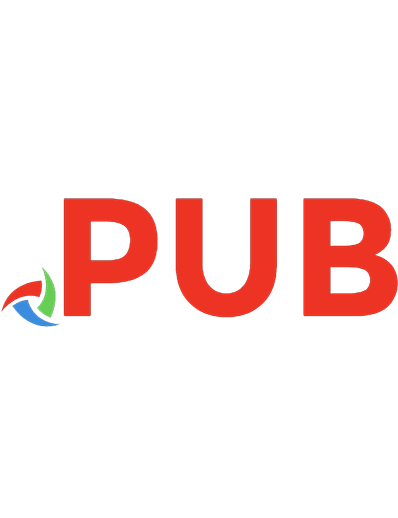The Political Thought of Thomas Aquinas
936 122 57MB
English Pages 386 Year 1963
Polecaj historie
Citation preview
THE POLITICAL THOUGHT OL THOMAS AQUINAS
By the same author
POETIC EXPERIENCE AN INTRODUCTION TO THOMIST AESTHETICS
MORALS AND MARRIAGE THE CATHOLIC BACKGROUND TO SEX
BARBARA CELARENT A DESCRIPTION OF SCHOLASTIC DIALECTIC
PHOENIX AND TURTLE THE UNITY OF KNOWING AND BEING
ST THOMAS AQUINAS PHILOSOPHICAL TEXTS
BRITAIN AT ARMS A SCRAPBOOK OF MILITARY HISTORY
BETWEEN COMMUNITY AND SOCIETY A PHILOSOPHY AND THEOLOGY OF THfi STATE
ST THOMAS AQUINAS THEOLOGICAL TEXTS
UP THE GREEN RIVER A NOVEL
THE POLITICAL THOUGHT OF THOMAS AQUINAS
Thomas ^Gilby
THE UNIVERSITY OF CHICAGO PRESS
Library of Congress Catalog Number 58-5539 THE
UNIVERSITY
OF
CHICAGO
PRESS,
CHICAGO
37
Longmans, Green & Co., Ltd., London W.i, England. The University of Toronto Press, Toronto 5, Canada Copyright in the International Copyright Union. Published 1958 Second Impression 1963 Printed in Great Britain
TO HARRY WALSTON
Attendendum est quod aliter sumunt politicum vel civile apud Philosophum et aliter apud Juristas. Commentary, V Ethics, lect. 12
vi
J*
CONTENTS
ABBREVIATIONS
viii xiv xiv
INTRODUCTION
XV
SYNOPSIS ACKNOWLEDGMENTS
PART ONE.
THE INFLUENCES AT WORK
Chapter I. THEOLOGIANS 1. The Bible as Mundane Guide 2. The Theology of Natural Law Chapter II. JURISTS 1. Canonists 2. Civilians Chapter III.
5
10 16 23
31 48
LANDED MEN AND WANDERERS
1. The Social Scene 2. The Order of Preachers Chapter IV. PHILOSOPHERS 1. The New Naturalism 2. Aristode from the Arabic and Greek PART TWO.
2
THE DEVELOPMENT IN ST THOMAS
55 55 66 73 75 78 90
Chapter 1. 2. 3. 4. 5.
V. THE ADVANCE FROM THE THEOLOGIANS Law in Nature The Concept of Law Types of Law The Jus Gentium, Dominion a Natural Condition
111 124 136 142 146
Chapter 1. 2. 3. 4.
VI. A DRAFT FOR THE JURISTS Law-Making as Art The Limits to Legalism Legality and Politics Legal Supremacy
159 162 175 187 191
• •
Vll
107
yiii
THE POLITICAL THOUGHT OF THOMAS AQUINAS
Chapter VII. 1. 2. 3. 4. 5. 6. 7. 8.
Justice, within the Official Community Private and Public Individual and Social Justice Politics and Morals Personal and Common Good The Corporate Group State Personality A Note on Terminology
Chapter VIII. 1. 2. 3. 4. 5.
CITIZENSHIP AND ECCENTRICITY
THE RECEPTION OF ARISTOTLE
The Commentaries on the Ethics and Politics The Brief Neo-PIellenism Political Method The Polity Political Equity
CONCLUSION.
THE POLITICAL DISCOUP.SE
1. The Plistorical Effect 2. The Three Social Phases 3. Summary
203 208 214 219 227 237 251 256 261 265
267 271 279 284 299 312 313 316 328 333
INDEX
SYNOPSIS INTRODUCTION
Rise of the. European State from feudalism—Frederick II and the Regnum St Thomas’s background His four new principles: 1, Political authority based on nature, not convention; 2, Not derived from ecclesiastical authority; 3, Limited to the maintenance of external justice; 4, Exercised as art, not expansion of ethics— Political science subsumed in a wider philosophical and theological doctrine. —
—
PART ONE
THE INFLUENCES AT WORK Augustinian theology—Roman Law—Medieval culture—Aristotelean philosophy.
CONTENTS
IX
Chapter I. THEOLOGIANS St Isidore’s Etymologies—Greek and Latin Fathers—St Augustine -—Identification of Christian philosophy and theology—Influence of the social doctrines of the Stoics—Contrast of innocence and convention—Religious acceptance of State not founded on righteousness, 1. The Bible as Mundane Guide.—The world of allegory and twelfth-century humanism—John of Salisbury—Beginnings of natural philosophy and study of social institutions—Parisian Summists—Commentaries on the Sapiential Books—Vincent of Beauvais. 2. The Theology of Natural Law.—Natural right and the Greeks— and the Romans—Early Schoolmen—-Nature as opposed to artificial, rational, supernatural—Impression of Eternal Law on the human mind—Scientific classification of laws not yet achieved. Chapter II. JURISTS Medieval legal temper—Wariness of theologians about legal studies—Bologna—Recovery of Justinian’s Law—Government— The Gloss of Accursius. 1. Canonists.—Line of lawyer Popes—St Raymund of Pennafort—Internal and external forum—Mixture of law and theology— The Canonical Movement as a political cause—Aloofness of theologians and friars—John of Paris—Humane effect of Canonists— Contract and the free society—Representative government—Office and person—Paternal and political association. 2. Civilians.—The Four Doctors—Glossators—Post-Glossators— Legal Scholasticism—Italian and French schools—Paris and Orleans—The Equity Wing—Placentinus—The power of the Princeps—The right of the Populus. Chapter III. LANDED MEN AND WANDERERS 1. The Social Scene.—Growth of trade—Town life—Personification of official power—Professionalism—Custom and Statute— Law—Aristocratic reaction to monarchy—Pilgrims—Non-classical influences. 2.
The Order of Preachers.—Vagrants—Friars—Dominicans— Manichees—Spirituals.
X
THE POLITICAL THOUGHT OF THOMAS AQUINAS
Chapter IV.
PHILOSOPHERS
Neo-Platonic and Stoic sources of Christian philosophy. 1. The New Naturalism.—Growth of natural sciences—The humanism of Chartres—Gradual discovery of Aristotle—Logic— Natural and metaphysical philosophy—Moral and political philosophy—Hostility of traditional divines. 2. Aristotle from the Arabic and Greek.—Arabic and Jewish commentators—Avicenna—Averroes—Translation from the Greek by Robert Grosseteste and William of Moerbeke—Latin Averroism— The Double Truth theory—The two worlds—The two cities— Germs of secularism. PART TWO
THE DEVELOPMENT IN ST THOMAS Movement from Imperium to Polis—Decline in the political power of Emperor and Pope—The Nation-State—Teaching career of St Thomas—His position between Augustinianism and Averroism— The function of Reason—Values in the material wrorld—Humana civilitas—Pre-Thomist and Post-Thomist Dominicans. Chapter V.
THE ADVANCE FROM THE THEOLOGIANS
Contrast of Greek and Latin concepts of community—of authority—Moral requirements for the possession and exercise of power— Legal positivism. 1. Law in Nature.—The idea of law wider than that of ‘positive legality’—Basis of rationalism—Political law' independent of sin— New respect for material Nature—Interdependence of sciences— Morality and economics—Biological springs of lawr—Jus according to philosophers and lawyers—Justice a condition of all virtue. 2. The Concept of Law.—Gradual development of the definition— The Ordinance of Reason and the Lex Regia—The commonwealth and the ultimate common good—Sovereign authority and the people—Promulgation and the canonical insistence on scientia. 3. Types of Law.—Seven classes considered—Eternal Law— Natural Law, primary and secondary precepts—The Gospel Law— The Lex Fomitis—Positive Divine Law and the Mosaic Lawr— Positive Human Law.
CONTENTS
a
XI
4. 77z










